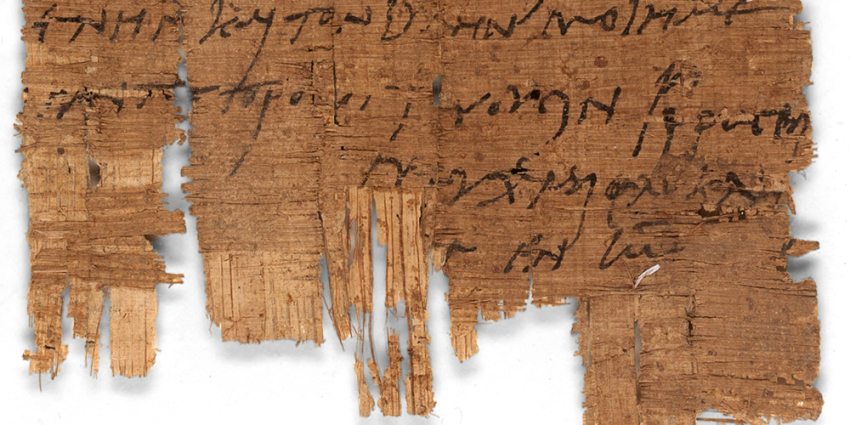Oldest Christian letter outside of Bible uncovered

A scrap of papyrus that was uncovered is approximately 1,700 years old and is being called the oldest Christian letter outside of the Bible.
Swiss researchers say the papyrus dates all the way back to the 230s A.D. and is believed to be older than all other Christian documentary evidence from Roman Egypt, according to the University of Basel.
The letter's origin has been traced back to Theadelphia, a village in central Egypt. It was sent by Arrianus to his brother, Paulus.
"Greetings, my lord, my incomparable brother Paulus," the letter reads.
"I, Arrianus, salute you, praying that all is as well as possible in your life."
Arrianus then talks about family matters and asks his brother to send fish liver sauce.
He ends the letter: "I pray that you fare well in the Lord."
Sabine Huebner, professor of Ancient History at the University of Basel, noted of the phrase "in the Lord" that "the use of this abbreviation — known as a nomen sacrum in this context – leaves no doubt about the Christian beliefs of the letter writer."
“It is an exclusively Christian formula that we are familiar with from New Testament manuscripts,” the professor noted.
Huebner also noted that the name Paulus was extremely rare at the time and that the brother was likely named after the apostle.
The brothers were likely young, educated sons of the local elite, public officials and landowners. Although the earliest believers in ancient Rome were portrayed as eccentrics who withdrew from the world and were threatened by persecution, the contents of this letter counter that notion.
"The letter contains indications that in the early third century, Christians were living outside the cities in the Egyptian hinterland, where they held political leadership positions and did not differ from their pagan environment in their everyday lives," the university said in its statement.
The letter has been in the care of the Swiss school for the past 100 years.
The papyrus fragment is part of a collection of ancient documents now housed at the University of Basel, among which is a Greek fragment — likely a medical document written by the famed Roman doctor Galen — which was brought to Switzerland in the 1500s.
The letter to Paulus is distinct from the rest of the documents because of its use of the phrase "in the Lord."



























